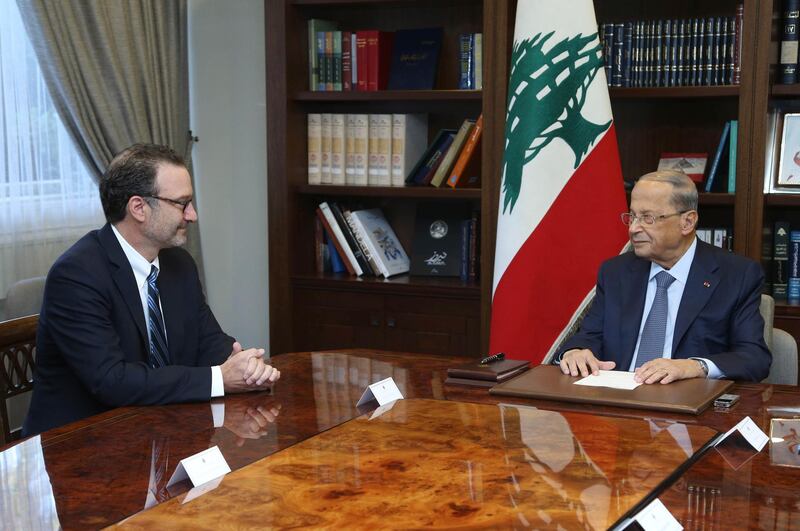A senior US official on Wednesday cautioned against blaming Washington for Lebanon’s economic woes, saying government mismanagement was the main reason for its crisis.
“Lebanon is in crisis because the Lebanese government has, for years, mismanaged the Lebanese economy,” David Schenker, US assistant secretary of state for Near Eastern affairs, told an online debate organised by the Beirut Institute.
“There is endemic corruption and they did not follow policies that any state should follow.”
Mr Schenker said it had been obvious that spending billions of dollars a year to defend the national currency while accumulating debt was unsustainable.
Some in Lebanon, especially pro-Hezbollah media, blamed US sanctions in late August 2019 on a Lebanese bank tied to the Iran-backed group for the financial meltdown in the country.
The sanctions forced the Banque du Liban, the central bank, to revoke the licence for Jammal Trust Bank.
About the same time, financial pressure rose on the Lebanese pound and Banque du Liban imposed capital controls, which were followed by a sovereign debt default.
But Mr Schenker pointed out that international ratings agencies have been steadily downgrading the creditworthiness of the Lebanese government and the country's banks well before the US sanctions on Jammal Trust bank.
The credit ratings downgrades contributed to undermining confidence in the currency. The Lebanese pound fell from a peg of 1,500 to the US dollar to 4,250 as the central bank ran out of foreign reserves.
Mr Schenker also came out in defence of Turkey, which sent Syrian militias and soldiers to Libya to defend the administration in Tripoli.
He said Ankara was "backing the internationally recognised government" and that Turkey "prevented what would have probably been a horrific humanitarian catastrophe" had Tripoli fallen.
The GNA has been locked in a year-long battle with the Libyan National Army, based in the country's east, who say they aim to end the rule of militias defending the Tripoli administration.
The US has come out in support of Turkey and the GNA in recent days after not taking a definite public stance on the conflict for months.
Mr Schenker said that the Turkish intervention in Syria was also positive.
He said Turkish troops in northern Syria prevented the "slaughter" of Syrians by the regime of President Bashar Al Assad and its allies.
"They prevented continued slaughter of Syrians by the Assad regime and Russia," Mr Schenker said. "I think personally that their intervention was a good thing."
Turkey bolstered local militias and rebels it backs in Idlib after a regime offensive this year supported by Russian bombing and Shiite militias backed by Iran.
It also strengthened Hayat Tahrir Al Sham, the most powerful Sunni extremist group in the region.
Turkish support allowed anti-regime forces to push back the offensive, ending with a temporary ceasefire.






